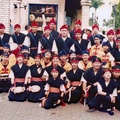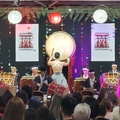São Paulo, capital. Economic center that brings together several local establishments managed by Japanese-Brazilian entrepreneurs. Similarities and peculiarities emerge in the impacts resulting from the COVID-19 outbreak caused by the coronavirus. As an example, four business creators share their experiences in this scenario.
* * * * *
United family
“The pandemic made us come together to work as a family”, says Cristiane Haruyama Sampei, creator of the Na-Na-Ya Pâtisserie bakery, in Vila Mariana. Her husband is helping her full time, as the Tourism segment – in which he worked – has generally stopped. “I thought about waiting for the quarantine period to avoid exposing the team to the danger of the disease... But I decided to continue.” “I am persistent and always try to see moments of difficulty as a moment of growth,” he says.
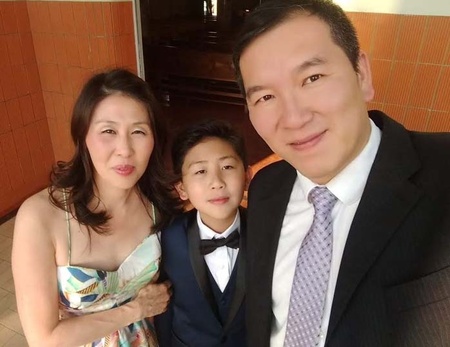
They started thinking about how to operate via delivery , as local consumption had been banned as a preventive measure. “We produced [the sweets] at night and fulfilled orders during the day. In two days we already had several and we were able to call two people from the team back”, he explains and celebrates.
However, two other employees needed to be re-included and Cris then had the idea of offering food as well. “As I imagined that those at home should have rice and salad, I decided to make mixes that could be sold by the kilo ( kare , tonkatsu , karaage , etc). And it worked".
With part of the team in the risk group, “the challenge was greater”. “We had to set up production at the home of one of the confectioners and ask our cook to come by private vehicle,” he says.
“It wasn’t easy”, confesses the micro-entrepreneur. “I spent some sleepless nights to prepare the recipes so that the team could produce”, he adds.
Challenges and changes
Ideas that emerged were put into practice to discover what could be good for them and their customers. And he explains: “there are many things to define and purchase, from packaging to delivery, in addition to training the team for a new operation”.
In the beginning, while her husband was responsible for receiving orders via WhatsApp, Cris took care of production. “After two months, we hired a tool that allows us to schedule deliveries. This way, the operation became more stable and I was able to go back to doing more strategic work”, he says. And, at this level of performance, the task that requires the most planning and creativity is finding ways to maintain sales volume, as “one day is never the same”. Despite this, the development of new products and team training are part of the routine.
Inconstancy is the main characteristic of this atypical situation we are experiencing. Therefore, “adaptation to the moment of crisis needs to be quick. If it works, that’s fine, but if it doesn’t, we need to look for another solution.” “To give up would be to ignore all the efforts made so far”, highlights the entrepreneur.
Support from and for the Nikkei community
In times like these, receiving support is – often – crucial. “Thanks to the public [ 90% Nikkei ] and our partners, we were able to continue”, he says. “There were more than 800 new customers during the pandemic”, he reveals, in a tone of gratitude. In fact, friends play an important role. “Niko Niko Mart, a convenience store, which was already a customer, promptly offered us help with publicity. The Omoide Sakaba izakaya has been selling our desserts too.”
Na-Na-Ya has participated in most Japanese-Brazilian community events for around four years. “We work in partnership with Ikoi-no-Sono on several events, such as the Immigration Show and Paella Solidária. With the quarantine, for the maintenance of the entities and also for our company, we thought of a way to continue to help them by moving our sales, as if we were participating in a normal event. This is how the Choux Cream Festival came about in favor of Ikoi and Kodomo-no-Sono”. And, according to Cristiane, the partnership worked well. “More than 1,700 choux creams were sold in one week, which made a good donation possible for both entities”, he concludes.
Sweet legacy
The businesswoman's ties with Japanese culture became closer when she realized that the field of Computer Science was not the path and that she wanted to dedicate herself to confectionery. Such was his determination that he soon realized his big dream: getting a scholarship in the field. “Through JICA (Japan International Cooperation Agency ) I had the opportunity to take a wagashi [traditional Japanese sweets] course, which aims to revitalize the Nikkei community.”
And the result of this experience? Strengthening the personal mission of valuing the persistence of immigrants. “Through Na-Na-Ya I would like to promote the culture of Japanese sweets. It’s a way of keeping the roots of the Japanese-Brazilian community alive”, he declares.
Protagonism
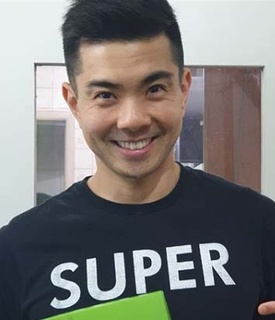
“Luckily”, no major difficulties arose for Kaeru Foods, a family business in the Paraíso neighborhood that, in addition to the well-known cakes, produces savory snacks and quick dishes. “We just closed the physical store”, says Rafael Ishii, son of Masao and Ana, founders of the business. His parents stayed at home because they were in the risk group, because they were elderly. “So I stayed here running the store”, adds the 35-year-old Sansei .
As they were already working with food delivery apps, the communication made on Kaeru's Instagram started to focus precisely on delivery and local pickup. Also according to Ishii, responsible for the Marketing and Digital Management areas, the highlight of the menu was the mini savory snacks.
Demand fell with the restricted movement of people. “We had a natural cost reduction caused by the quarantine, due to the refrigerators and showcases that were no longer used, and a reduction of more than 50% in daily production.” In this way, the three employees who made up the team worked on a rotation basis until one of them decided to resign. While one spent 15 days at home, the others were divided into shifts from the morning until the early evening and the afternoon until the end of the service. Then, one of the two would take a break for the same period and so they continued with the relay.
Mobilization and unity
There was a humanization and there were those who became aware of others. An example of an initiative is the Instagram campaign that students from Colégio Bandeirantes promoted to help establishments in the region, What if they all close ? . For Rafael it means a “very cool” movement, including that of his parents. “We received some donations, both from customers and people who were not customers and mobilized for the campaign itself. We were extremely happy with their desire to help our business”, he says.
Doing good allows us to put differences aside and sympathize with other people's adversities, which could be ours. As a consequence, the feeling that prevails is one of unity. “I got to know our neighbors much better, because I worried about them”, says the entrepreneur. “Today, thank God, we don’t pay rent, because we own the property. But I know that everything else pays and, knowing that the movement here is very weak, I had this desire to help”, he explains. The way he found to support them was by promoting them on Instagram. Among them are the partners of Niko Niko Mart, with whom they signed a partnership to sell frozen portions of the mini kare pan .
Community rapprochement
Although Kaeru's frequenting and consuming public was limited to Nikkei , it diversified as the menu became more varied. However, the successor to the family business already states that he intends to get closer to the community of Japanese descendants. “As time went by, my parents, as they were older, never had the initiative, the ability, the affinity to be able to better promote their product.” This is because, in his opinion, they offer items that Easterners identify with and have the quality they expect. “Generally, Nikkei and Nihonjin are more demanding when it comes to taste,” he explains. In other words, they are “more rigorous and critical in their assessment”.
In fact, among the clients are Japanese people who come to Brazil to work and bring their families. Not only the cakes – which “have always been a hit” – but also the karepan , the choux cream and the chocolate bomb are on this parish's list of favorites.
Online convenience
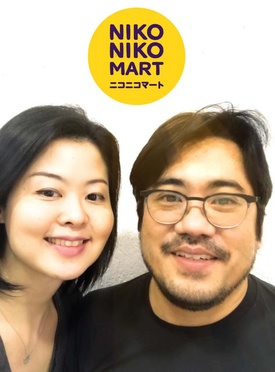
Naomi Sato, owner of the Niko Niko Mart convenience store, also considers she was lucky, as the website project for the delivery operation was already underway before the quarantine decree. Here, the “challenge was to adapt our store to the new profile of online consumers”. “As our audience was made up of young students who consumed obentôs, drinks, sweets and ice cream, we had to invest heavily in the store's stock to be able to serve customers – mostly adults and elderly people who were looking for products and foods to cook at home”, he says. .
“I have always had a lot of contact with the Nikkei community, as since I was a child I actively participated in the taikai karaoke [“championship”] in São Paulo. I was a scholarship holder for the province of Hiroshima in 99, and I was part of ABEUNI [Aliança Beneficente Universitária de São Paulo] and ASEBEX [Brazilian Association of Former Scholars in Japan] ”. My daughter even attended the Hongwanji Scout Group for a few years”, details Naomi. Thus, the microentrepreneur states that – during this quarantine – she received support from the Japanese-Brazilian community, as the store was publicized among the Caramuru and Hongwanji scout groups.
Products that signify tradition
The entrepreneur believes that Niko Niko goes beyond the delivery of oriental products. “We deliver a bit of tradition, customs and what has been passed down from generation to generation in terms of 'cuisine'. What you ate as a child, the seasoning your obá used.” And he adds: “I see this happening when younger customers buy mirim , tofu or dashi kombu ”. Therefore, in some way, Naomi feels that she contributes to maintaining this culture within Nikkei families.
Breaking paradigms
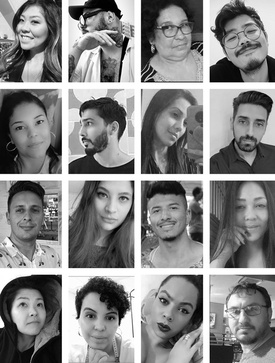
Remote work was the solution adopted by most companies, as was the case of Rafael Shimabukuro, 34, designer and creator of the clothing brand Bastille. “Valuing the health” of employees, the financial and HR sectors started working from home . “We also implemented the bag delivery scheme so that customers could discover the new collection that had just been launched”, he says. In terms of development and sewing, contracts were paused. “The adaptations ranged from the structure, in which the stock was all concentrated in a single location, to the approach with the customer to offer this new service and the activation of the online store.”
Fitting room at home
The fashion delivery project emerged “a while ago in one of the stores where the entire surrounding area was basically residential buildings” and had to be started immediately due to the closure of the store. “In a sales team rotation system, once a week, an employee goes to the studio, which has become the base, to assemble the bags , always taking all hygiene precautions, such as using a mask and alcohol in gel, and wash your hands constantly”, explains Rafael. As well as handling, packaging and parts – before leaving and after returning – receive greater attention in disinfection.
“The first bags were assembled for our best customers and friends of the brand”, highlights the designer. “We contacted each of them offering this new service”, he adds. With the positive feedback, the advantages became evident. “Many enjoyed the experience, as they were able to try all the pieces without any commitment, without worrying about time or traffic, and in the comfort of their own home.”
However, the new sales format posed certain obstacles. Have contact only through social media and do a style reading (a conversation about preferences) that can please the client without seeing them in person. “Get the size, taste, type of piece right”, explains Rafael.
Collective future
“Keeping Bastille running today is more than a dream come true, it is transforming a business into something that encourages small creators and local commerce.” And, looking to the future, the fashion market entrepreneur sees the importance of “exchanging experiences with the Nikkei community” and believes that it is possible to “make a difference towards a fairer society with and for everyone”.
© 2020 Tatiana Maebuchi



